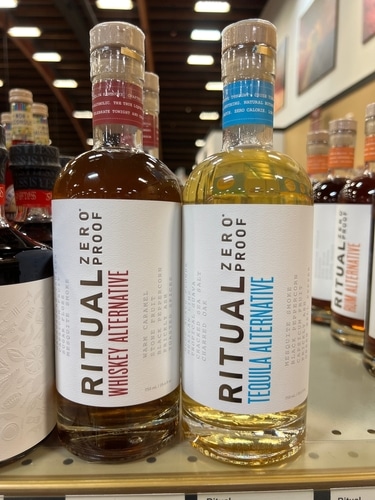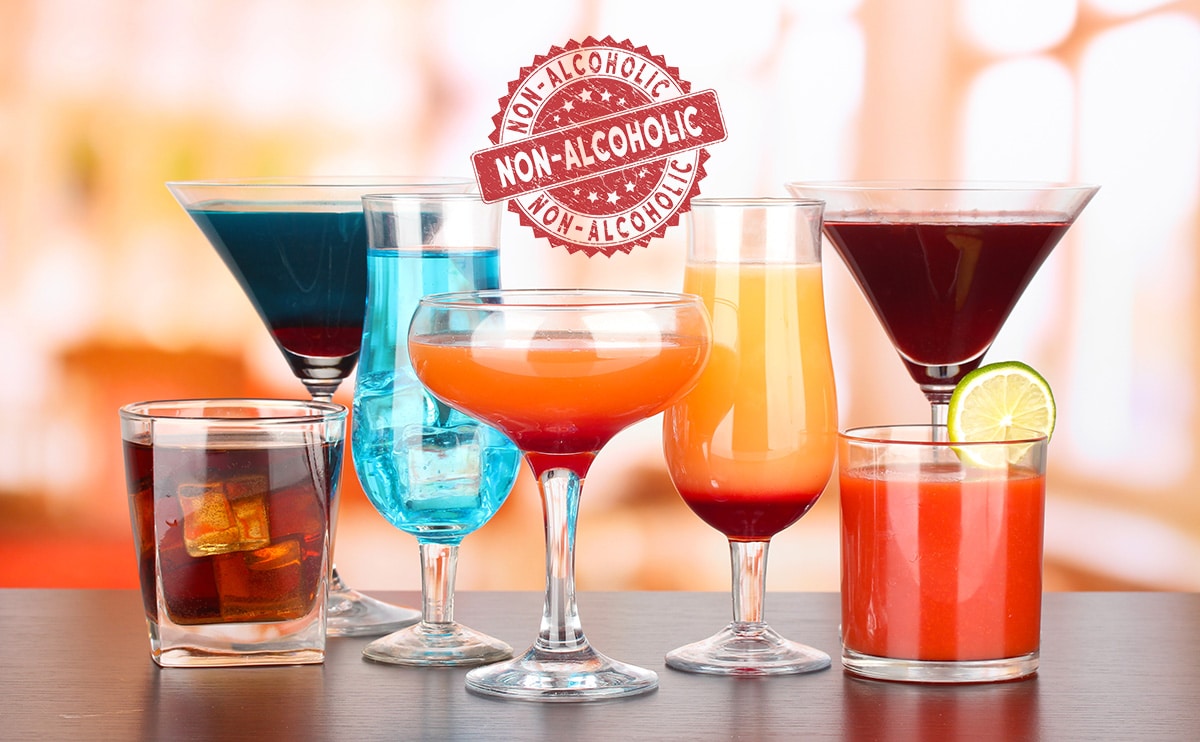April is National Alcohol Awareness Month, a time to highlight the dangers of alcohol abuse. According to the National Institute on Alcohol Abuse and Alcoholism, more than 140,000 people die from alcohol-related causes each year in the United States, making it the fourth-leading preventable cause of death in our country behind tobacco use, poor diet and inactivity, and illegal drugs.
Alcohol Use Disorder (AUD) is a serious condition that affects millions of people worldwide. It’s characterized by a compulsive and harmful use of alcohol despite negative consequences on one’s health, relationships, and daily life.
In recent years, there’s been a major uptick in the popularity of pseudo-alcoholic beverages, including non-alcoholic beer, cocktails, and spirits as alternatives to alcoholic beverages. And while this is an encouraging trend on the whole, it raises questions when it comes to those in recovery for AUD.
What Are Non-alcoholic Spirits and Beer?
Understanding Alcohol-Free Beverage Alternatives
Non-alcoholic spirits and beer have been around for a while, but they’ve gained a lot of popularity in recent years as people seek alcohol-free alternatives for various reasons, including health, lifestyle, and recovery from alcohol use disorder (AUD). They are often positioned as a healthier choice compared to traditional alcoholic beverages, as they typically contain fewer calories and may not contribute to the negative health effects associated with excessive alcohol consumption.
These beverages usually mimic the flavors, aromas, and overall experience of traditional alcoholic beverages, but with little to no alcohol content.
Non-alcoholic spirits are typically made by distilling botanicals, herbs, and other plant-based ingredients to create a complex flavor profile similar to traditional spirits like gin, vodka, rum, and whiskey. The alcohol is then removed or reduced, resulting in a spirit-like beverage without the intoxicating effects. These non-alcoholic spirits may be drunk by themselves or used in “mocktails” and non-alcoholic mixed drinks.

Non-alcoholic beer is usually made through a fermentation process where malted grains, hops, yeast, and water are used to create a beer-like beverage. During fermentation, the alcohol content is typically reduced or removed, resulting in a beer with little to no alcohol.
It’s important to note that the alcohol content in non-alcoholic spirits and beer vary. Some non-alcoholic beverages may still contain trace amounts of alcohol, typically below 0.5% alcohol by volume (ABV), which is considered alcohol-free in many countries. However, even with low alcohol content, these beverages may not be suitable for everyone, especially for individuals in recovery from AUD or those who choose to abstain from alcohol completely.
What Are the Risks for Those in Recovery?
While non-alcoholic cocktails, spirits, and beer may not contain alcohol, there are still potential risks for individuals in recovery from AUD. It is important to understand that these beverages can still trigger memories, emotions, and cravings associated with alcohol. Some potential risks of drinking non-alcoholic beverages in recovery include:
Triggering cravings: The taste, smell, and presentation of non-alcoholic cocktails, spirits, and beer may resemble alcoholic beverages, which can trigger cravings for those in recovery. Cravings can be powerful and may potentially lead to relapse if not managed effectively.
Psychological associations: Many individuals in recovery have established strong psychological associations between alcohol and certain activities, events, or emotions. Consuming non-alcoholic beverages that resemble alcoholic drinks may evoke these associations and potentially trigger emotional distress or cravings.
Social pressure: In social settings where alcoholic beverages are commonly consumed, individuals in recovery may face social pressure to drink, even if the beverages are non-alcoholic. This can create uncomfortable situations and temptations to engage in risky drinking behavior.
Misinterpretation of cues: Non-alcoholic beverages may have low or trace amounts of alcohol, which may not be clearly communicated or understood. This can lead to misinterpretation of cues and potential confusion for individuals in recovery who are striving for complete abstinence from alcohol.
What Should Those in Recovery Consider Before Trying a Non-alcoholic Beverage?
If you are in recovery from AUD and considering trying a non-alcoholic cocktail, spirit, or beer, it’s essential to keep certain factors in mind to make an informed decision. Some important considerations include:
- Triggers and cravings: Reflect on your triggers and cravings associated with alcohol and evaluate if consuming non-alcoholic beverages may potentially trigger these cravings or emotions.
- Personal readiness: Assess your readiness and stability in recovery. If you are in early recovery or struggling with cravings, it may be best to avoid non-alcoholic beverages that resemble alcoholic drinks.
- Social context: Consider the social context in which you may be consuming non-alcoholic beverages. If you are in a situation where there may be social pressure or temptation to drink, it may be wise to avoid such beverages.
- Communication: Clarify the alcohol content of non-alcoholic beverages with the bartender or server to avoid any misunderstandings or misinterpretations.
- Coping strategies: Have coping strategies in place to manage cravings or emotions that may arise from consuming non-alcoholic beverages. This may include using healthy coping skills, reaching out to a support system, or having an exit plan if needed.
Navigating Non-alcoholic Beverages in Recovery
In the end, the decision to consume non-alcoholic beverages in recovery is a personal one, and it’s important to make an informed choice that aligns with your individual recovery journey. Remember that recovery is a unique and ongoing process, and what works for one person may not work for another. It’s essential to prioritize your sobriety and well-being above all else.
If you are unsure about trying a non-alcoholic beverage in recovery, it’s important to seek support and guidance. Here are some steps you can take:
Consult with a treatment professional. Talk to your addiction treatment professional or counselor about your concerns and get their guidance on whether consuming non-alcoholic beverages is advisable for you at this stage of your recovery.
Reach out to a support system. Lean on your support system, such as a sponsor, therapist, or trusted friend in recovery, and discuss your doubts or questions about non-alcoholic beverages.

Attend support group meetings. Attend support group meetings, such as Alcoholics Anonymous (AA) or SMART Recovery, and discuss your concerns with fellow members who may have similar experiences and insights.
Prioritize self-care. Focus on self-care and prioritize your physical, emotional, and mental well-being in recovery. Taking care of yourself holistically can help you make informed decisions about consuming non-alcoholic beverages.
If you have any doubts or concerns about consuming non-alcoholic beverages, seek guidance from your support system and professionals to make an informed decision.
Enterhealth Can Help
Whether you’re still struggling with alcohol use disorder or you’ve stayed sober for years, Enterhealth has the resources to help if you need it. We offer an extensive continuum of care that includes inpatient and outpatient rehabilitation, as well as continuing care and even virtual support programs. Our compassionate team of drug and alcohol addiction experts meet you where you’re at in your recovery with one goal in mind: to help you start or maintain your path to health and sobriety.
Call to speak with one of our intake specialists anytime day or night at 800.388.4601 or use our contact form to send us a message and we’ll get back to you as soon as possible.




